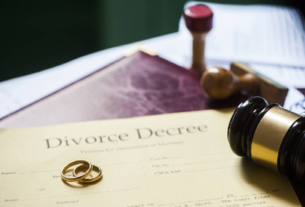Managing the affairs of a deceased is a complex and emotionally challenging process. When it comes to estate administration, seeking the expertise of a probate lawyer becomes essential. A probate lawyer specializes in navigating the intricacies of the legal system, ensuring a smooth and efficient distribution of assets according to the deceased person’s wishes. Probate laws and procedures can vary from one jurisdiction to another. A probate lawyer is well-versed in the legal requirements specific to your location and can provide expert guidance throughout the entire probate process. They can help you understand the necessary documentation, deadlines, and court filings, ensuring compliance with all legal obligations.
This guidance is crucial in avoiding potential errors or delays that may arise without professional assistance. Determining the accurate value of an estate is essential for tax purposes and equitable distribution among beneficiaries. A probate lawyer can assist in appraising the estate’s assets, including properties, investments, and personal belongings. Their knowledge and experience can help ensure that the estate is appropriately valued, minimizing the risk of disputes or legal complications down the line.
Resolving disputes and mediating conflict
Estate administration can sometimes lead to disputes among family members or other beneficiaries. Emotions can run high during this sensitive time, potentially resulting in conflicts that hinder the probate process. A probate estate acts as a neutral party, mediating disputes and working towards amicable resolutions. Their objective perspective and legal expertise can help diffuse tensions, preventing disagreements from escalating and protecting the best interests of all parties involved.
Estate administration often involves intricate legal procedures, such as drafting and filing legal documents, communicating with financial institutions, and resolving outstanding debts and claims against the estate. A probate lawyer has the knowledge and experience to handle these complex procedures efficiently, ensuring compliance with legal requirements and minimizing the potential for errors or oversights. Probate lawyers can provide valuable guidance on minimizing tax liabilities associated with estate administration. They stay updated on current tax laws and can identify strategies to maximize tax savings for the estate. B intricacies of estate tax laws, a probate lawyer you navigate the process and potentially save significant amounts of money.
Protecting the executor from liability
The executor of an estate has numerous responsibilities and obligations. Failing to fulfill these duties correctly can expose the executor to personal liability. A probate lawyer can help alleviate this burden by advising the executor on their legal obligations, ensuring compliance, and protecting them from potential legal consequences.
Gathering and managing the deceased person’s assets– It involves locating and taking control of all the assets of the deceased, including bank accounts, investments, real estate, and personal belongings.
Paying off debts and taxes– The executor is responsible for identifying and notifying creditors, paying off debts using the assets of the estate, and filing tax departed person and the estate.
The ultimate goal of estate administration is to distribute the assets to the beneficiaries effectively. A probate lawyer can streamline the process, ensuring that the distribution adheres to the deceased person’s wishes as outlined in their will. By managing the necessary paperwork, legal filings, and court appearances, a probate lawyer helps expedite the distribution process, minimizing delays and complications.





